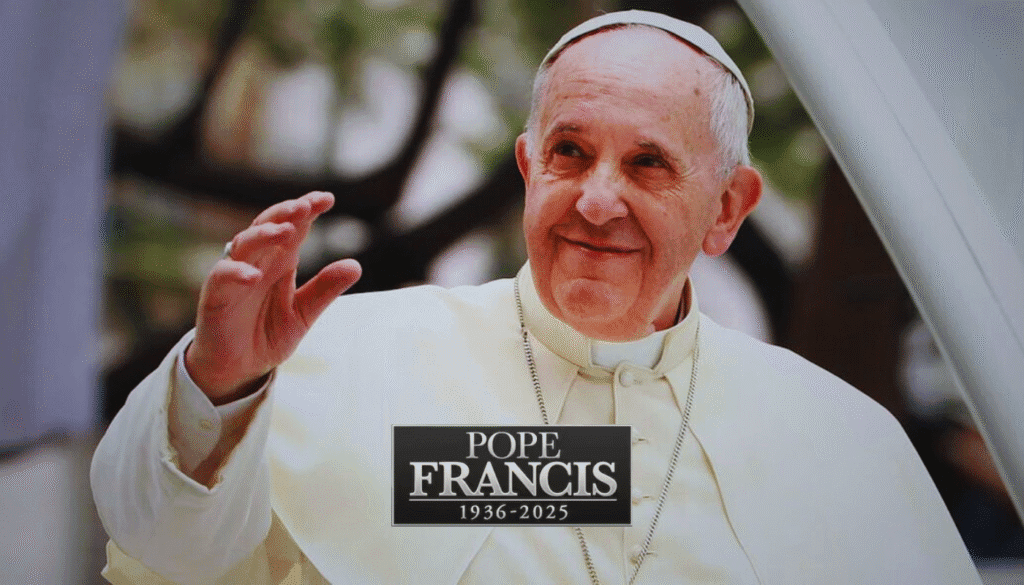
On Easter Monday, April 21, 2025, the world bid farewell to Pope Francis, who passed away peacefully at the age of 88 in the Vatican’s Casa Santa Marta. Pope Francis death was caused by a stroke and heart failure. He was last seen on Sunday, when he gave the traditional Easter blessing from the balcony of St. Peter’s. Cardinal Kevin Farrell delivered the solemn announcement, marking the end of a transformative papacy rooted in simplicity, mercy, and justice.
Who is Pope Francis?
Roots in Argentina: A Simple Beginning
Born Jorge Mario Bergoglio on December 17, 1936, in Buenos Aires, Argentina, he was the son of Italian immigrants. A trained chemical technician who became a priest, Bergoglio’s life was always marked by humility. Even as a Jesuit Archbishop, he lived in a modest apartment, cooked his own meals, and traveled by public transport.
A Voice for the Marginalized
During Argentina’s 2001 financial crisis, Bergoglio became a moral compass for many. He stood firmly with the poor and criticized systems that trampled human dignity. His social justice message was spiritual at its core—calling the faithful back to the Catechism, the Beatitudes, and the Ten Commandments. From the Streets of Buenos Aires to the Heart of the World
A Missionary Heart in the Heart of Buenos Aires
As Archbishop of Buenos Aires, he served over three million people with a vision rooted in communion and compassion. His four-part pastoral plan focused on building welcoming communities, empowering lay leadership, evangelizing the city, and serving the vulnerable.
From Cardinal to Pope: A Surprising Choice
Elevated to the rank of Cardinal in 2001 by Pope John Paul II, Bergoglio was already known for declining honors and choosing service over ceremony. His election as Pope on March 13, 2013, shocked many—but quickly became a beacon of hope for the Church and beyond.
A Papacy Defined by Mercy and Reform
As Pope Francis, he championed causes often left on the margins: climate justice, interfaith dialogue, migration, and economic inequality. He wrote powerful encyclicals, reformed Vatican structures, and remained a consistent advocate for the poor and forgotten.
The Jesuit Spirit: Simplicity, Scholarship, and Service
Even as the world’s most prominent religious leader, Francis retained his Jesuit discipline—intellectual, spiritual, and deeply humble. He warned against “spiritual worldliness” and called the Church to look outward, toward the suffering, the lost, and the unloved.
Legacy of a Servant Leader
Pope Francis taught the world that leadership doesn’t require grandeur. His model of the papacy was rooted in presence, not pomp; in listening, not lecturing. “If you follow Christ,” he said, “you understand that trampling upon a person’s dignity is a serious sin.”
A Life That Preached Without Words
In word and deed, Pope Francis reminded the Church and the world of what matters most—love, mercy, dignity, and justice. His life was not just a legacy—it was a light that helped many find their way back to faith.
Discover all our latest posts and insights by heading over to our blog page.